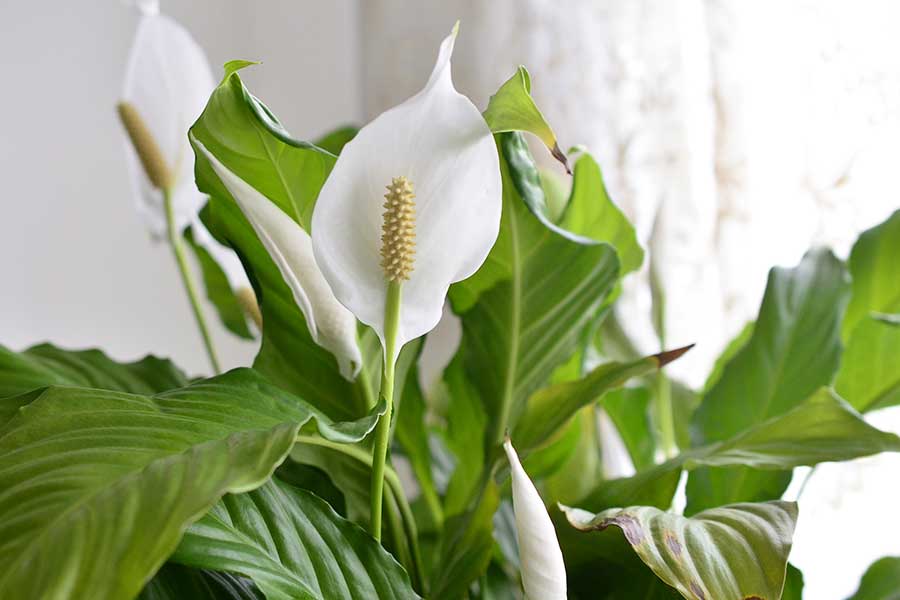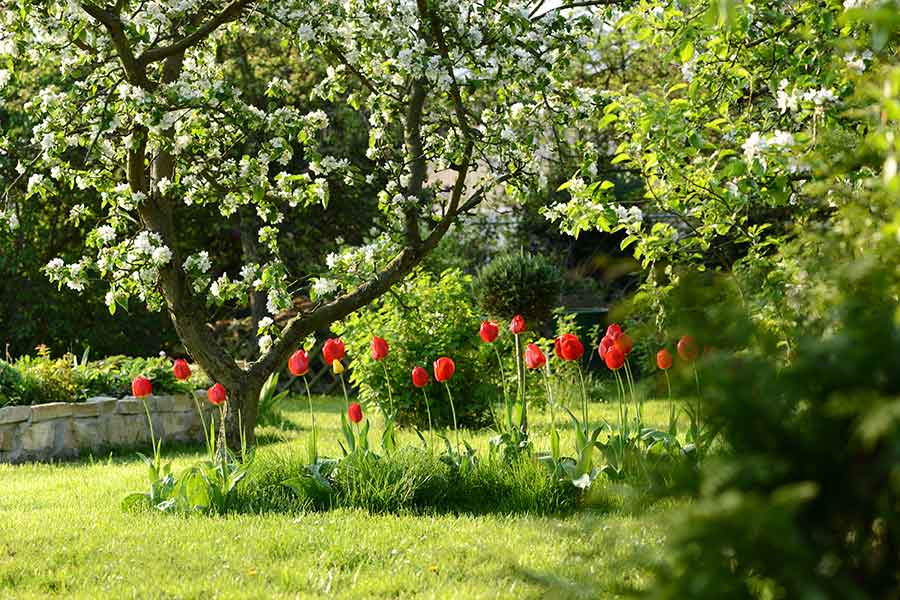How to Beat Air Pollution with Plants
It’s World Environment Day on 5 June and this year’s theme is Beat Air Pollution. The Oxford Garden Centre team thought this would be an excellent opportunity to explore all the air pollution fighting house plants, garden plants and trees we have available in store.

It’s possible to beat air pollution using a combination of indoor plants, outdoor plants and living walls. Here are our tips on the best plants to use to achieve clean air solutions, this World Environment Day and beyond, and help do your bit to fight climate change.
House plants

Did you know that people in industrialised countries spend more than 80% of their lives indoors and that each year more than 4 million people worldwide die prematurely as a result of indoor air pollution? Your air indoors is often a mix of outdoor-derived compounds (such as carbon dioxide and dust-like particles) and indoor-derived contaminants (such as toxins emitted from paints and detergents as well as fungal spores).
As reported by the RHS, houseplants can make a real change to homes, schools and workplaces. As well as having psychological benefits on mood, stress levels and productivity, house plants can help combat breathing problems by removing airborne pollutants and improving indoor air quality.
According to Cell Press via Science Daily, plants improve air quality by:
Absorbing carbon dioxide and releasing oxygen through photosynthesis
Transpiring water vapour through microscopic leaf pores to increase humidity
Passively absorbing pollutants on the external surfaces of leaves and on the plant root-soil system
While the RHS states there are no scientifically-tested recommendations, it’s known there are certain plants that can contribute to better air quality. These include the following, which are all available from Oxford Garden Centre:
Mother-in-law’s Tongue or Snake Plant – This is a low-maintenance plant that’s best placed in the bedroom as it takes in CO2 at night.
Peace Lily – Effective at removing ammonia, benzene and formaldehyde, these pretty plants help to purify and dehumidify the air.
Boston Fern – Excellent at removing formaldehyde from the air, these ferns are easy to grow if kept moist. But our horticultural team wouldn’t recommend them for the bedroom owing to new studies into the release of cancerous spores at night.
Other easy-to-grow houseplants (also available in store) that can help beat air pollution indoors include: Madagascar Dragon Tree, India Rubber Tree/Rubber Plant and English/Common Ivy.
Garden plants and trees

In response to the growing problem of air pollution in towns and cities, the Phyto-sensor toolkit – a guide to building an air quality garden – was published by the Citizen Sense research group in partnership with The Museum of London. This details ideal locations to plant air quality gardens and which plants are best equipped to combat harmful pollutants outside. Plants featured (and also available at Oxford Garden Centre) include:
Wallflower – These fight air pollutants with particles of different sizes such as dust and soot.
Common Ivy – The large surface area of ivy leaves makes the plant “ideal for air purification”.
Lady’s Mantle – With hairy leaves, this plant reduces nitrogen dioxide levels and traps harmful particles.
Aster and Osmanthus – These are both bioindication plants, which change appearance when specific pollutants are around.
Find out more about the project at citizensense.net.
The Phyto-sensor toolkit mentions that trees can also help the cause and, as stated in this LifeGate article, “Relying on the role of trees in cities is vital not only for air quality at the local level but also in order to fight climate change, in an attempt to fulfil the objectives set by the Paris Agreement”.
Those trees rated as the greenest of the green (and available for us to order from our nursery suppliers) include:
Mediterranean Hackberry – Beloved for its carbon dioxide pollutant absorbing nature, this tree can grow 25-30 metres relatively quickly.
Littleleaf and largeleaf Linden – Both varieties excel in capturing CO2 and effectively reducing smog.
Norway Maple – A winning air cleaner, this Maple is capable of clearing five tonnes of CO2 in 30 years.
Turkey Oak – This majestic beauty, with the ability to absorb 4000 tonnes of CO2, is a favourite for cities and parks.
Ginkgo Biloba – A living dinosaur, Ginkgo has excellent CO2 and pollutant cleaning credentials.
Living walls

The Phyto-sensor toolkit also sanctions the installation of living walls to act as pollution barriers, especially near busy roads and in urban areas. Oxford Garden Centre’s recommendations for a living wall or roof, all of which are available in store, are:
Sedum
Hedera
Thyme
Ajuga
Vinca
Carex
“A living roof is easy to build. Put down a liner, similar to butyl pond liner, to protect the roof and create slats along the edge of the roof to keep soil in place. I recommend Westland John Innes No.2 Potting on Compost for this. For a sedum only roof, it’s super-easy; they’ll grow out of cracks!” – Andrew Gardiner, Oxford Garden Centre Manager.
For a wow-factor (and pollinator-friendly) living roof on your garage or shed in the summer, any of these combinations can be topped up by a scattering wildflower meadow seeds.
“A simple way of doing a living wall is just to plant a climber and train it to go up the wall by a trellis or vine eyes and wire. You can use Lonicera, Passiflora Hedera, Clematis, Rosa and Pyracantha to name a few” – Andrew Gardiner, Oxford Garden Centre Manager.
Eco-friendly gardening
We offer a fantastic peat-free compost option for all those with green fingers who are green at heart too. Melcourt All Purpose Peat Free Compost is endorsed by the RHS and is suitable for myriad garden applications including potting-on and planting out. We also have an organic option: Melcourt Sylvagrow Organic Compost.
Oxford Garden Centre aims to provide more peat-free compost and other environmentally-friendly horticultural options soon, so watch this space as our business grows and our stock expands.
For more advice on how to beat air pollution with plants, please talk to our horticultural team in store. They’ll also be able to order in any plants or trees you’d like for your house or garden.
